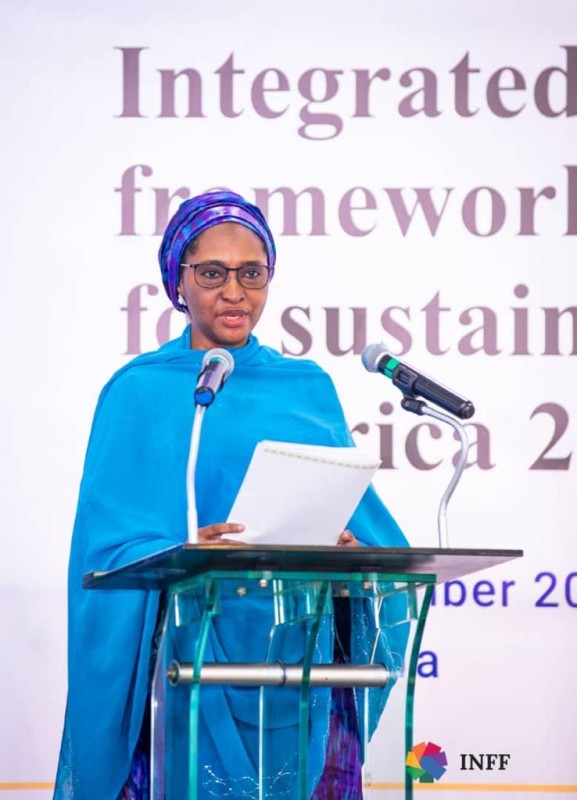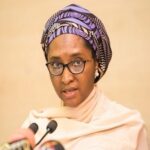As African Continent Leads In Countries Volunteering To Joint Initiative
International organizations working with the government of Nigeria have disclosed that more than 40 countries in Sub-Saharan Africa (SSA) are now using Integrated National Financing Framework (INFF) initiative.
Making the disclosure recently at a workshop in Abuja, United Nations Economic Commission for Africa (ECA), Department of Economic and Social Affairs, United Nations Children’s Fund (UNICEF) and International Budget Partnership (IBP) said that the African continent has been leading in the number of countries volunteering to join the INFFinitiative.
According to the organisers of the workshop, throughout 2020 and 2021, as the COVID-19 pandemic dealt shocks to both the sustainable development outlook and the means for financing recovery and medium- to long-term progress, interest in integrated national financing grew.
The organisers noted that national processes to tailor and operationalise INFFs through national institutions are advancing.
“A growing number of countries is reaching the defining stage of articulating an INFF roadmap. By the end of this year, 22 countries would have developed a financing strategy that identifies reforms associated with budgeting, taxation, public debt, investment, development cooperation, private sector development, diaspora investment, remittances, etc,” they said.
They stated that one of the strategic pillars of the INFF process was linked with monitoring and oversight of financing, with a particular focus on promoting transparency throughout the budget cycle.

According to them: “Budget openness in SSA has seen significant progress over the last decade. The recently launched Open Budget Survey 2021 reported that the average transparency score received by countries in the region was at its highest level since the survey was founded in 2006.”
“For the 16 countries assessed in every round between 2008 and 2021, the average transparency score increased by 16 points (or a jump of about 70 percent), making SSA one of the best regional improvers in the world over that period.
They stated: “These improvements have been achieved from a low base, however, and much work remains as confirmed through the different INFF-related roadmaps.
In their words: “A growing body of evidence shows that countries that have more open budgeting systems have stronger democracies, greater equity and better development outcomes. Higher levels of transparency are also associated with lower debt levels and improved debt management, more accurate revenue projections and better credit ratings, which, in turn, can help attract investment and reduce sovereign borrowing costs.
“Increased public participation in budgeting can also lead to more efficient and effective expenditures of public resources towards sustainable development goals (SDG)-aligned priorities. It is clear that improving progress on human capital and sustainable development requires improving budget transparency, mechanisms for the public to contribute to budgeting processes, and Parliamentary and audit oversight.
Speaking further, they said: “Decisions regarding expenditures directed to national recovery affect whether and how governments build back more equitable economies and societies that are also resilient to climate change and deliver on the SDGs.
“In Africa, as elsewhere in the world, efforts to promote open budgeting practices—through systems that are transparent, open to public engagement and scrutiny, and that receive strong oversight from independent institutions—have contributed to more efficient spending and improved outcomes in human capital.
In this context, beginning on Day 3 of the workshop, government officials were joined by the Open Budget Survey civil society researchers from their countries. Together, they took stock of countries’ investments in human capital and the openness of their budgets. They also developed draft country-level action plans to improve budget openness and to increase support for social sectors and efforts to combat climate change.
Two and a half years from the initial commitments made by INFF pioneers to operationalise the INFF approach, and at a time when many countries will launch their financing strategies and introduce specific public or private-related financing reforms, they proposed that it was important to gather again, reflect and plan forward.
The proposed four-day regional workshop, conducted within the framework of the INFF Facility and the regional budget transparency initiative, had brought the African INFF community of practice together with other senior decision makers to share ongoing experiences in drafting financing strategies, setting up SDG financing dialogues and implementing open budget reforms.
The event also discussed emerging topics – disaster risk management and the green/climate agenda, fiscal decentralisation, fostering a human-centred and green recovery amidst multiple shocks (the pandemic, climate events, conflict, macroeconomic volatility, fiscal austerity), etc. The goals of the workshop were to strengthen the capacities of government officials, United Nations (UN) staff and other stakeholders with special focus on setting up SDG financing dialogues, developing financing strategies and promoting budget openness; promote knowledge-sharing among countries, including brainstorming around lessons learned and the dos and the don’ts; and to generate a regional dialogue around emerging trends and issues that affect the rollout of INFFs and open budget reforms.
The workshop was held over four days in a hybrid format. Participants were provided with access to a virtual learning environment prior to the workshop, and Zoom video conferencing details was shared in due course. Simultaneous interpretation was available in English, French and Portuguese.
Assessments was conducted at the beginning and end to ascertain the specialised knowledge acquired by participants. Participants were also invited to provide feedback on the sessions at the end of the workshop.
The workshop was designed primarily for senior officials and INFF focal points from governments in SSA, including those working at ministries of finance, planning and economic development. Researchers from academic institutions, other regional stakeholders, including UN agencies,international financial institutions(IFIs) and European Union(EU) and representatives of civil society also benefited from the workshop. Invitations to nominate government participants were sent via resident coordinator offices while invitations to regional partners and civil society organisations (CSOs) were sent via ECA, United Nations Development Programme(UNDP),UNICEF and IBP focal points.
Integrated national financing frameworks (INFFs) were first introduced by UN Member States in the 2015 Addis Ababa Action Agenda as a country-led approach for strengthening public and private financing for sustainable development. INFFs offer a framework for bringing together the policies used to mobilise and govern public and private financing. They help governments align and strengthen the contribution of financing policies toward implementation of national development plans. They deepen the connections across financing policy areas and help build greater collaboration between public and private actors.



